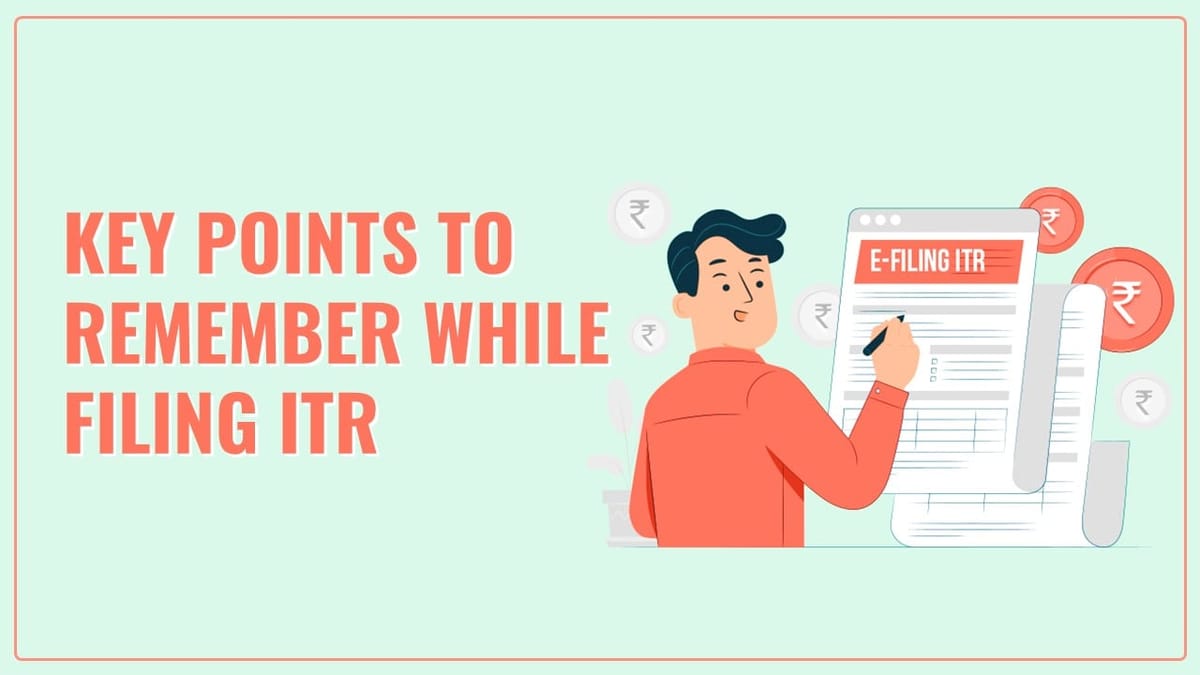If you are a salaried income taxpayer, the process of filing an ITR is relatively simple. You simply need to file your return using Form 1, often known as ITR-1.
Reetu | Jun 6, 2024 |

Key points Salaried Individuals should know while Filing ITR
If you are a salaried income taxpayer, the process of filing an income tax return is relatively simple. You simply need to file your return using Form 1, often known as ITR-1.
A resident individual who earns less than Rs.50 lakh during the financial year and receives income from salary, house property, family pension income, agricultural income (up to Rs.5,000), and other sources such as interest income from bank FDs or other investments can file income tax return form ITR-1.
It is important to remember, however, that certain income will not be included in ITR-1, such as profits and gains from business and professions, capital gains, income from more than one house property, lottery winnings, and the maintenance of race horses.
Let us learn more about this here.
Points to remember while Filing ITR
When filing an income tax return, the taxpayer must specify the nature of his or her employment, such as whether he or she is a central government employee, a state government employee, an employee of a public sector firm, a pensioner, or an employee of the private sector.
You must download AIS and keep copies of other documents such as Form 16, house rent receipt (if applicable), and investment payment premium receipts (if applicable). However, you are not required to attach any of these documents (such as evidence of investment) to your return.
You just need to keep them with you in case you are required to produce them before tax officials during an assessment or inquiry.
Throughout the year, taxpayers pay TDS or TCS (tax collected at source), and these amounts should correspond to the tax shown when filing the return.
The data of tax paid already can be accessed through AIS (Annual Information Statement) and form 26AS where taxpayers should check the actual tax paid. And in case of any discrepancy, you should reconcile the same.
Along with the current year (FY24), you can file income tax returns for the preceding two years if you did not file them. You are eligible to file an ITR-U (updated income tax return) for the previous two years.
To avoid complications with filing your return and receiving your refund, make sure you do the following:
1. Make sure your Aadhaar and PAN are linked.
2. When the income tax department sends the refund, it transfers the funds to a bank account. So, you need to pre-validate the bank account where you wish to receive your refund.
3. You must select the correct ITR form before filing; otherwise, the submitted return will be classified as defective, and you will be required to file a revised ITR using the correct form.
In case of any Doubt regarding Membership you can mail us at [email protected]
Join Studycafe's WhatsApp Group or Telegram Channel for Latest Updates on Government Job, Sarkari Naukri, Private Jobs, Income Tax, GST, Companies Act, Judgements and CA, CS, ICWA, and MUCH MORE!"